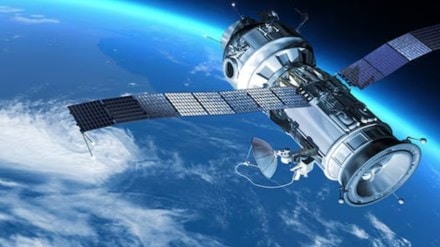India is working on a plan to better protect its satellites after a close encounter in space showed the risks posed by other countries’ spacecraft. The government wants to develop “bodyguard satellites” that can spot and respond to threats, people familiar with the matter told HT.
Satellites have also been important during military tensions, such as India’s conflict with Pakistan in May. In mid-2024, an Indian satellite orbiting 500–600 km above Earth came dangerously close to a satellite from a neighbouring country. The foreign satellite approached within just 1 km of the Indian one, which is used for mapping and monitoring activities that could have military applications.
Although there was no collision, officials said the close encounter could have been a show of strength or a test of capabilities.
Satellite protection project
The new satellite-protection plan is part of a larger effort by Prime Minister Narendra Modi’s government to strengthen India’s space security. This includes a Rs 27,000 crore ($3 billion) plan for about 50 surveillance satellites, with the first expected to launch next year, according to several media reports.
India has faced several conflicts with both Pakistan and China over the past seven decades. While Pakistan has only eight satellites, India has more than 100, and China operates over 930, according to satellite-tracking data.
India and China have ongoing border disputes, including a deadly clash in 2020. Officials have warned that China’s military is becoming a bigger threat in space.
Collaboration with startups
India is now working with startups to find new solutions for satellite protection. One idea is to launch LiDAR (Light Detection and Ranging) satellites that can quickly detect threats and give ground teams time to move satellites out of danger, the reports mentioned.
LiDAR satellites would work alongside ground-based radars and telescopes to track objects in space 24/7, said Sudheer Kumar N, a former ISRO official and independent consultant. Currently, India does not have around-the-clock tracking capability, but startups are working to develop it.
